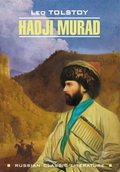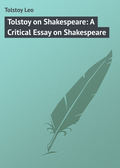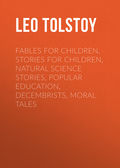
Лев Толстой
The Kingdom of God is Within You; What is Art?
APPENDIX I
This is the first page of Mallarmé's book, "Divagations": —
LE PHÉNOMÈNE FUTUR
Un ciel pâle, sur le monde qui finit de décrépitude, va peut-être partir avec les nuages: les lambeaux de la pourpre usée des couchants déteignent dans une rivière dormant à l'horizon submergé de rayons et d'eau. Les arbres s'ennuient, et, sous leur feuillage blanchi (de la poussière du temps plutôt que celle des chemins) monte la maison en toile de Montreur de choses Passées: maint réverbère attend le crépuscule et ravive les visages d'une malheureuse foule, vaincue par la maladie immortelle et le péché des siècles, d'hommes près de leurs chétives complices enceintes des fruits misérables avec lesquels périra la terre. Dans le silence inquiet de tous les yeux suppliant là-bas le soleil qui, sous l'eau, s'enfonce avec le désespoir d'un cri, voici le simple boniment: "Nulle enseigne ne vous régale du spectacle intérieur, car il n'est pas maintenant un peintre capable d'en donner une ombre triste. J'apporte, vivante (et préservée à travers les ans par la science souveraine) une Femme d'autrefois. Quelque folie, originelle et naïve, une extase d'or, je ne sais quoi! par elle nommé sa chevelure, se ploie avec la grâce des étoffes autour d'un visage qu' éclaire la nudité sanglante de ses lèvres. A la place du vêtement vain, elle a un corps; et les yeux, semblables aux pierres rares! ne valent pas ce regard qui sort de sa chair heureuse: des seins levés comme s'ils étaient pleins d'un lait éternel, la pointe vers le ciel, les jambes lisses qui gardent le sel de la mer première." Se rappelant leurs pauvres épouses, chauves, morbides et pleines d'horreur, les maris se pressent: elles aussi par curiosité, mélancoliques, veulent voir.
Quand tous auront contemplé la noble créature, vestige de quelque époque déjà maudite, les uns indifférents, car ils n'auront pas eu la force de comprendre, mais d'autres navrés et la paupière humide de larmes résignées, se regarderont; tandis que les poètes de ces temps, sentant se rallumer leur yeux éteints, s'achemineront vers leur lampe, le cerveau ivre un instant d'une gloire confuse, hantés du Rythme et dans l'oubli d'exister à une époque qui survit à la beauté.
THE FUTURE PHENOMENON – by Mallarmé
A pale sky, above the world that is ending through decrepitude, going, perhaps, to pass away with the clouds: shreds of worn-out purple of the sunsets wash off their color in a river sleeping on the horizon, submerged with rays and water. The trees are weary and, beneath their foliage, whitened (by the dust of time rather than that of the roads), rises the canvas house of "Showman of things Past." Many a lamp awaits the gloaming, and brightens the faces of a miserable crowd vanquished by the immortal illness and the sin of ages, of men by the sides of their puny accomplices pregnant with the miserable fruit with which the world will perish. In the anxious silence of all the eyes supplicating the sun there, which sinks under the water with the desperation of a cry, this is the plain announcement: "No sign-board now regales you with the spectacle that is inside, for there is no painter now capable of giving even a shadow of it. I bring living (and preserved by sovereign science through the years) a Woman of other days. Some kind of folly, naïve and original, an ecstasy of gold, I know not what, by her called her hair, clings with the grace of some material round a face brightened by the blood-red nudity of her lips. In place of vain clothing, she has a body; and her eyes, resembling precious stones! are not worth that look, which comes from her happy flesh: breasts raised as if full of eternal milk, the points toward the sky; the smooth legs, that keep the salt of the first sea." Remembering their poor spouses, bald, morbid, and full of horrors, the husbands press forward: the women, too, from curiosity, gloomily wish to see.
When all shall have contemplated the noble creature, vestige of some epoch already damned, some indifferently, for they will not have had strength to understand, but others, broken-hearted, and with eyelids wet with tears of resignation, will look at each other; while the poets of those times, feeling their dim eyes rekindled, will make their way toward their lamp, their brain for an instant drunk with confused glory, haunted by Rhythm, and forgetful that they exist at an epoch which has survived beauty.
APPENDIX II 128
No. 1
The following verses are by Vielé-Griffin, from page 28 of a volume of his Poems: —
OISEAU BLEU COULEUR DU TEMPS
1
Sait-tu l'oubli
D'un vain doux rêve,
Oiseau moqueur
De la forêt?
Le jour pâlit,
La nuit se lève,
Et dans mon cœur
L'ombre a pleuré;
2
O chante-moi
Ta folle gamme,
Car j'ai dormi
Ce jour durant;
Le lâche emoi
Où fut mon âme
Sanglote ennui
Le jour mourant…
3
Sais-tu le chant
De sa parole
Et de sa voix,
Toi qui redis
Dans le couchant
Ton air frivole
Comme autrefois
Sous les midis?
4
O chante alors
La mélodie
De son amour,
Mon fol espoir,
Parmi les ors
Et l'incendie
Du vain doux jour
Qui meurt ce soir.
Francis Vielé-Griffin.
BLUE BIRD
1
Canst thou forget,
In dreams so vain,
Oh, mocking bird
Of forest deep?
The day doth set,
Night comes again,
My heart has heard
The shadows weep;
2
Thy tones let flow
In maddening scale,
For I have slept
The livelong day;
Emotions low
In me now wail,
My soul they've kept:
Light dies away…
3
That music sweet,
Ah, do you know
Her voice and speech?
Your airs so light
You who repeat
In sunset's glow,
As you sang, each,
At noonday's height.
4
Of my desire,
My hope so bold,
Her love – up, sing,
Sing, 'neath this light,
This flaming fire,
And all the gold
The eve doth bring
Ere comes the night.
No. 2
And here are some verses by the esteemed young poet Verhaeren, which I also take from page 28 of his Works: —
ATTIRANCES
Lointainement, et si étrangement pareils,
De grands masques d'argent que la brume recule,
Vaguent, au jour tombant, autour des vieux soleils.
Les doux lointaines! – et comme, au fond du crépuscule,
Ils nous fixent le cœur, immensément le cœur,
Avec les yeux défunts de leur visage d'âme.
C'est toujours du silence, à moins, dans la pâleur
Du soir, un jet de feu soudain, un cri de flamme,
Un départ de lumière inattendu vers Dieu.
On se laisse charmer et troubler de mystère,
Et l'on dirait des morts qui taisent un adieu
Trop mystique, pour être écouté par la terre!
Sont-ils le souvenir matériel et clair
Des éphèbes chrétiens couchés aux catacombes
Parmi les lys? Sont-ils leur regard et leur chair?
Ou seul, ce qui survit de merveilleux aux tombes
De ceux qui sont partis, vers leurs rêves, un soir,
Conquérir la folie à l'assaut des nuées?
Lointainement, combien nous les sentons vouloir
Un peu d'amour pour leurs œuvres destituées,
Pour leur errance et leur tristesse aux horizons.
Toujours! aux horizons du cœur et des pensées,
Alors que les vieux soirs éclatent en blasons
Soudains, pour les gloires noires et angoissées.
Émile Verhaeren,Poèmes.
ATTRACTIONS
Large masks of silver, by mists drawn away,
So strangely alike, yet so far apart.
Float round the old suns when faileth the day.
They transfix our heart, so immensely our heart,
Those distances mild, in the twilight deep,
Looking out of dead faces with their spirit eyes.
All around is now silence, except when there leap
In the pallor of evening, with fiery cries,
Some fountains of flame that God-ward do fly.
Mysterious trouble and charms us infold,
You might think that the dead spoke a silent good-by,
Oh! too mystical far on earth to be told!
Are they the memories, material and bright,
Of the Christian youths that in catacombs sleep
'Mid the lilies? Are they their flesh or their sight?
Or the marvel alone that survives, in the deep,
Of those that, one night, returned to their dream
Of conquering folly by assaulting the skies?
For their destitute works – we feel it seems,
For a little love their longing cries
From horizons far – for their errings and pain.
In horizons ever of heart and thought,
While the evenings old in bright blaze wane
Suddenly, for black glories anguish fraught.
No. 3
And the following is a poem by Moréas, evidently an admirer of Greek beauty. It is from page 28 of a volume of his Poems: —
ENONE AU CLAIR VISAGE
Enone, j'avais cru qu'en aimant ta beauté
Où l'âme avec le corps trouvent leur unité,
J'allais, m'affermissant et le cœur et l'esprit,
Monter jusqu'à cela qui jamais ne périt,
N'ayant été crée, qui n'est froideur ou feu,
Qui n'est beau quelque part et laid en autre lieu;
Et me flattais encor' d'une belle harmonie
Que j'eusse composé du meilleur et du pire,
Ainsi que le chanteur qui chérit Polimnie,
En accordant le grave avec l'aigu, retire
Un son bien élevé sur les nerfs de sa lyre.
Mais mon courage, hélas! se pâmant comme mort,
M'enseigna que le trait qui m'avait fait amant
Ne fut pas de cet arc que courbe sans effort
La Vénus qui naquit du mâle seulement,
Mais que j'avais souffert cette Vénus dernière,
Qui a le cœur couard, né d'une faible mère.
Et pourtant, ce mauvais garçon, chasseur habile,
Qui charge son carquois de sagette subtile,
Qui secoue en riant sa torche, pour un jour,
Qui ne pose jamais que sur de tendres fleurs,
C'est sur un teint charmant qu'il essuie les pleurs,
Et c'est encore un Dieu, Enone, cet Amour.
Mais, laisse, les oiseaux du printemps sont partis,
Et je vois les rayons du soleil amortis.
Enone, ma douleur, harmonieux visage,
Superbe humilité, doux honnête langage,
Hier me remirant dans cet étang glacé
Qui au bout du jardin se couvre de feuillage,
Sur ma face je vis que les jours ont passé.
Jean Moréas.
ENONE
Enone, in loving thy beauty, I thought,
Where the soul and the body to union are brought,
That mounting by steadying my heart and my mind,
In that which can't perish, myself I should find.
For it ne'er was created, is not ugly and fair;
Is not coldness in one part, while on fire it is there.
Yes, I flattered myself that a harmony fine
I'd succeed to compose of the worst and the best,
Like the bard who adores Polyhymnia divine,
And mingling sounds different from the nerves of his lyre,
From the grave and the smart draws melodies higher.
But, alas! my courage, so faint and nigh spent,
The dart that has struck me proves without fail
Not to be from that bow which is easily bent
By the Venus that's born alone of the male.
No, 'twas that other Venus that caused me to smart,
Born of frail mother with cowardly heart.
And yet that naughty lad, that little hunter bold,
Who laughs and shakes his flowery torch just for a day,
Who never rests but upon tender flowers and gay,
On sweetest skin who dries the tears his eyes that fill,
Yet oh, Enone mine, a God's that Cupid still.
Let it pass; for the birds of the Spring are away,
And dying I see the sun's lingering ray.
Enone, my sorrow, oh, harmonious face,
Humility grand, words of virtue and grace,
I looked yestere'en in the pond frozen fast,
Strewn with leaves at the end of the garden's fair space,
And I read in my face that those days are now past.
No. 4
And this is also from page 28 of a thick book, full of similar poems, by M. Montesquiou.
BERCEUSE D'OMBRE
Des formes, des formes, des formes
Blanche, bleue, et rose, et d'or
Descendront du haut des ormes
Sur l'enfant qui se rendort.
Des formes!
Des plumes, des plumes, des plumes
Pour composer un doux nid.
Midi sonne: les enclumes
Cessent; la rumeur finit…
Des plumes!
Des roses, des roses, des roses
Pour embaumer son sommeil,
Vos pétales sont moroses
Près du sourire vermeil.
O roses!
Des ailes, des ailes, des ailes
Pour bourdonner à sont front,
Abeilles et demoiselles,
Des rythmes qui berceront.
Des ailes!
Des branches, des branches, des branches
Pour tresser un pavillon,
Par où des clartés moins franches
Descendront sur l'oisillon.
Des branches!
Des songes, des songes, des songes
Dans ses pensers entr' ouverts
Glissez un peu de mensonges
A voir le vie au travers
Des songes!
Des fées, des fées, des fées
Pour filer leurs écheveaux
Des mirages, de bouffées
Dans tous ces petits cerveaux.
Des fées!
Des anges, des anges, des anges
Pour emporter dans l'éther
Les petits enfants étranges
Qui ne veulent pas rester…
Nos anges!
Comte Robert de Montesquiou-Fezensac,Les Hortensias Bleus.
THE SHADOW LULLABY
Oh forms, oh forms, oh forms
White, blue, and gold, and red
Descending from the elm trees,
On sleeping baby's head.
Oh forms!
Oh feathers, feathers, feathers
To make a cozy nest.
Twelve striking: stops the clamor;
The anvils are at rest…
Oh feathers!
Oh roses, roses, roses
To scent his sleep awhile,
Pale are your fragrant petals
Beside his ruby smile.
Oh roses!
Oh wings, oh wings, oh wings
Of bees and dragon-flies,
To hum around his forehead,
And lull him with your sighs.
Oh wings!
Branches, branches, branches
A shady bower to twine,
Through which, oh daylight, faintly
Descend on birdie mine.
Branches!
Oh dreams, oh dreams, oh dreams
Into his opening mind,
Let in a little falsehood
With sights of life behind.
Dreams!
Oh fairies, fairies, fairies
To twine and twist their threads
With puffs of phantom visions
Into these little heads.
Fairies!
Angels, angels, angels
To the ether far away,
Those children strange to carry
That here don't wish to stay…
Our angels!
APPENDIX III
These are the contents of "The Nibelung's Ring": —
The first part tells that the nymphs, the daughters of the Rhine, for some reason guard gold in the Rhine, and sing: Weia, Waga, Woge du Welle, Walle zur Wiege, Wagala-weia, Wallala, Weiala, Weia, and so forth.
These singing nymphs are pursued by a gnome (a nibelung) who desires to seize them. The gnome cannot catch any of them. Then the nymphs guarding the gold tell the gnome just what they ought to keep secret, namely, that whoever renounces love will be able to steal the gold they are guarding. And the gnome renounces love, and steals the gold. This ends the first scene.
In the second scene a god and a goddess lie in a field in sight of a castle which giants have built for them. Presently they wake up and are pleased with the castle, and they relate that in payment for this work they must give the goddess Freia to the giants. The giants come for their pay. But the god Wotan objects to parting with Freia. The giants get angry. The gods hear that the gnome has stolen the gold, promise to confiscate it, and to pay the giants with it. But the giants won't trust them, and seize the goddess Freia in pledge.
The third scene takes place underground. The gnome Alberich, who stole the gold, for some reason beats a gnome, Mime, and takes from him a helmet which has the power both of making people invisible and of turning them into other animals. The gods, Wotan and others, appear and quarrel with one another and with the gnomes, and wish to take the gold, but Alberich won't give it up, and (like everybody all through the piece) behaves in a way to insure his own ruin. He puts on the helmet, and becomes first a dragon and then a toad. The gods catch the toad, take the helmet off it, and carry Alberich away with them.
Scene IV. The gods bring Alberich to their home, and order him to command his gnomes to bring them all the gold. The gnomes bring it. Alberich gives up the gold, but keeps a magic ring. The gods take the ring. So Alberich curses the ring, and says it is to bring misfortune on any one who has it. The giants appear; they bring the goddess Freia, and demand her ransom. They stick up staves of Freia's height, and gold is poured in between these staves: this is to be the ransom. There is not enough gold, so the helmet is thrown in, and they also demand the ring. Wotan refuses to give it up, but the goddess Erda appears and commands him to do so, because it brings misfortune. Wotan gives it up. Freia is released. The giants, having received the ring, fight, and one of them kills the other. This ends the Prelude, and we come to the First Day.
The scene shows a house in a tree. Siegmund runs in tired, and lies down. Sieglinda, the mistress of the house (and wife of Hunding), gives him a drugged draught, and they fall in love with each other. Sieglinda's husband comes home, learns that Siegmund belongs to a hostile race, and wishes to fight him next day; but Sieglinda drugs her husband, and comes to Siegmund. Siegmund discovers that Sieglinda is his sister, and that his father drove a sword into the tree so that no one can get it out. Siegmund pulls the sword out, and commits incest with his sister.
Act II. Siegmund is to fight with Hunding. The gods discuss the question to whom they shall award the victory. Wotan, approving of Siegmund's incest with his sister, wishes to spare him, but, under pressure from his wife, Fricka, he orders the Valkyrie Brünnhilda to kill Siegmund. Siegmund goes to fight; Sieglinda faints. Brünnhilda appears and wishes to slay Siegmund. Siegmund wishes to kill Sieglinda also, but Brünnhilda does not allow it; so he fights with Hunding. Brünnhilda defends Siegmund, but Wotan defends Hunding. Siegmund's sword breaks, and he is killed. Sieglinda runs away.
Act III. The Valkyries (divine Amazons) are on the stage. The Valkyrie Brünnhilda arrives on horseback, bringing Siegmund's body. She is flying from Wotan, who is chasing her for her disobedience. Wotan catches her, and as a punishment dismisses her from her post as a Valkyrie. He casts a spell on her, so that she has to go to sleep and to continue asleep until a man wakes her. When some one wakes her she will fall in love with him. Wotan kisses her; she falls asleep. He lets off fire, which surrounds her.
We now come to the Second Day. The gnome Mime forges a sword in a wood. Siegfried appears. He is a son born from the incest of brother with sister (Siegmund with Sieglinda), and has been brought up in this wood by the gnome. In general the motives of the actions of everybody in this production are quite unintelligible. Siegfried learns his own origin, and that the broken sword was his father's. He orders Mime to reforge it, and then goes off. Wotan comes in the guise of a wanderer, and relates what will happen: that he who has not learnt to fear will forge the sword, and will defeat everybody. The gnome conjectures that this is Siegfried, and wants to poison him. Siegfried returns, forges his father's sword, and runs off, shouting, Heiho! heiho! heiho! Ho! ho! Aha! oho! aha! Heiaho! heiaho! heiaho! Ho! ho! Hahei! hoho! hahei!
And we get to Act II. Alberich sits guarding a giant, who, in form of a dragon, guards the gold he has received. Wotan appears, and for some unknown reason foretells that Siegfried will come and kill the dragon. Alberich wakes the dragon, and asks him for the ring, promising to defend him from Siegfried. The dragon won't give up the ring. Exit Alberich. Mime and Siegfried appear. Mime hopes the dragon will teach Siegfried to fear. But Siegfried does not fear. He drives Mime away and kills the dragon, after which he puts his finger, smeared with the dragon's blood, to his lips. This enables him to know men's secret thoughts, as well as the language of birds. The birds tell him where the treasure and the ring are, and also that Mime wishes to poison him. Mime returns, and says out loud that he wishes to poison Siegfried. This is meant to signify that Siegfried, having tasted dragon's blood, understands people's secret thoughts. Siegfried, having learnt Mime's intentions, kills him. The birds tell Siegfried where Brünnhilda is, and he goes to find her.
Act III. Wotan calls up Erda. Erda prophesies to Wotan, and gives him advice. Siegfried appears, quarrels with Wotan, and they fight. Suddenly Siegfried's sword breaks Wotan's spear, which had been more powerful than anything else. Siegfried goes into the fire to Brünnhilda: kisses her; she wakes up, abandons her divinity, and throws herself into Siegfried's arms.
Third Day. Prelude. Three Norns plait a golden rope, and talk about the future. They go away. Siegfried and Brünnhilda appear. Siegfried takes leave of her, gives her the ring, and goes away.
Act I. By the Rhine. A king wants to get married, and also to give his sister in marriage. Hagen, the king's wicked brother, advises him to marry Brünnhilda and to give his sister to Siegfried. Siegfried appears; they give him a drugged draught, which makes him forget all the past and fall in love with the king's sister, Gutrune. So he rides off with Gunther, the king, to get Brünnhilda to be the king's bride. The scene changes. Brünnhilda sits with the ring. A Valkyrie comes to her and tells her that Wotan's spear is broken, and advises her to give the ring to the Rhine nymphs. Siegfried comes, and by means of the magic helmet turns himself into Gunther, demands the ring from Brünnhilda, seizes it, and drags her off to sleep with him.
Act II. By the Rhine. Alberich and Hagen discuss how to get the ring. Siegfried comes, tells how he has obtained a bride for Gunther and spent the night with her, but put a sword between himself and her. Brünnhilda rides up, recognizes the ring on Siegfried's hand, and declares that it was he, and not Gunther, who was with her. Hagen stirs everybody up against Siegfried, and decides to kill him next day when hunting.
Act III. Again the nymphs in the Rhine relate what has happened. Siegfried, who has lost his way, appears. The nymphs ask him for the ring, but he won't give it up. Hunters appear. Siegfried tells the story of his life. Hagen then gives him a draught, which causes his memory to return to him. Siegfried relates how he aroused and obtained Brünnhilda, and every one is astonished. Hagen stabs him in the back, and the scene is changed. Gutrune meets the corpse of Siegfried. Gunther and Hagen quarrel about the ring, and Hagen kills Gunther. Brünnhilda cries. Hagen wishes to take the ring from Siegfried's hand, but the hand of the corpse raises itself threateningly. Brünnhilda takes the ring from Siegfried's hand, and when Siegfried's corpse is carried to the pyre, she gets on to a horse and leaps into the fire. The Rhine rises, and the waves reach the pyre. In the river are three nymphs. Hagen throws himself into the fire to get the ring, but the nymphs seize him and carry him off. One of them holds the ring; and that is the end of the matter.
The impression obtainable from my recapitulation is, of course, incomplete. But however incomplete it may be, it is certainly infinitely more favorable than the impression which results from reading the four booklets in which the work is printed.







